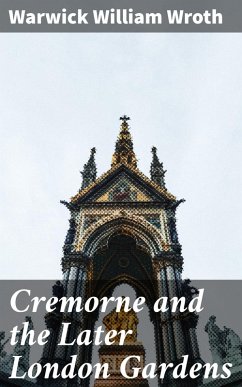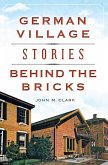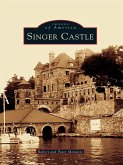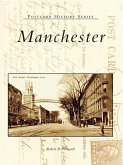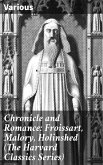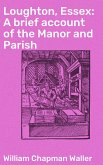In 'Cremorne and the Later London Gardens' written by Warwick William Wroth, readers are taken on a literary journey through the evolution of London's gardens during the 19th century. Wroth's detailed account not only provides a vivid description of the iconic Cremorne Gardens but also delves into the social and cultural significance of these urban green spaces. His eloquent prose captures the essence of a bygone era, making this book a valuable resource for scholars interested in the history of urban development and leisure culture in London. Wroth's meticulous research and insightful analysis shed light on the pivotal role that these gardens played in shaping the city's landscape and communal life. Warwick William Wroth, a renowned historian and expert on Victorian London, brings his expertise to the forefront in 'Cremorne and the Later London Gardens.' His deep understanding of the subject matter and passion for historical preservation are evident in every page, making this book a must-read for anyone interested in the history of London's green spaces. Wroth's dedication to meticulously documenting the evolution of these gardens is commendable, solidifying his reputation as a leading authority on the topic. I highly recommend 'Cremorne and the Later London Gardens' to readers who are curious about the historical development of urban green spaces and the social dynamics that influenced their creation. Wroth's engaging narrative style and wealth of knowledge make this book both informative and enjoyable, offering a unique perspective on London's cultural landscape.
Dieser Download kann aus rechtlichen Gründen nur mit Rechnungsadresse in A, B, BG, CY, CZ, D, DK, EW, E, FIN, F, GR, H, IRL, I, LT, L, LR, M, NL, PL, P, R, S, SLO, SK ausgeliefert werden.

